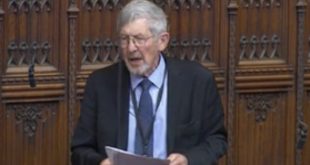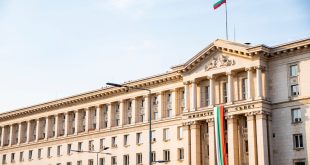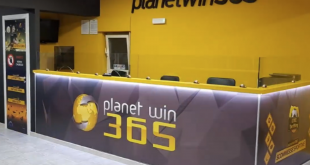Following the announcement of the £5.1bn TV rights Premier League deal, Tom Mockridge, Virgin Media Chief, has openly stated his concerns that customers will bear the cost of the mammoth new deal.
Talking to ITV, Mockridge stated his belief that: “The money only comes from one place in the end which is the consumer.”
How much validity is there in this statement? Following part one, which analysed what the deal meant for the Premiership, and the sport as a whole, this follow-up will assess the criticisms and potential issues surrounding the deal, including the prospective effects on consumers.
The finalised price of £5.1bn was driven up following bidders in the form of Discovery, who own Eurosport, and Qatar based BeIN Sports. Had it been up to broadcaster Virgin Media however, the auction would not have gone ahead at all.
In November 2014 regulator and watchdog Ofcom subsequently launched an investigation. This was at the request of Virgin Media who claimed that the manner in which matches are sold breaches competition law, and that not enough matches are made available to broadcast.
Virgin Media had hoped for the auction to be suspended until the completion of the investigation, but this, of course, did not happen. The Premier League had called the broadcaster’s attempt to halt the proceedings “self-serving”.
In a statement Virgin also expressed their reasons for wishing to halt the proceedings: “Failure to do so will leave fans, who already pay the most to see the least amount of football in Europe, facing yet another big rise in the cost of watching live football on TV.”
What about us?
So the argument Virgin are making is based, at least superficially, on the fact that the consumers will be the ones who bear the brunt of this mega new deal. Is this the case?
It seems inevitable that the price of a Sky Sports subscription will rise, as the broadcaster is forced to find some way of recouping their huge outgoings. Toby Syfret, of Enders Analysis, has stated that their analysis has concluded that if the full cost was passed on to their subscribers then it would mean a sizable £10 per month increase on top of the pre-existing £24.50 sports bundle.
Syfret also stated however his firm’s belief that this will not be what Sky do, instead they are anticipating something smaller, and more easily digestible such as a £1 increase across the board for all Sky customers.
“Sky have made it clear they will do what they can to absorb the extra cost,” Syfret continued, “But it’s a bloody big sum to recover”.
Joshua Raymond, Chief Market Strategist at City Index, believes that sports packages specifically will see up to a £4 per month increase, and added that “it’s now likely that its (Sky) subscribers will have to absorb at least some of the additional cost as a result.”
Current subscription costs
- Sky Sports – +£24.50
- BT Sports – +£12 (£15 HD) but free via the BT Sports app and online with BT broadband
Not as sweet as it seems…
 Lord Alan Sugar, a former Tottenham chairman, has been quite vocal in this debate. He’s stated that it is negative for the international future of England, in that the money will end up being spent on players and players agents. He told BBC Sport how young English players would be “starved” of games as clubs spend the increased revenue importing foreign talent.
Lord Alan Sugar, a former Tottenham chairman, has been quite vocal in this debate. He’s stated that it is negative for the international future of England, in that the money will end up being spent on players and players agents. He told BBC Sport how young English players would be “starved” of games as clubs spend the increased revenue importing foreign talent.
Amidst the flood of criticism, Richard Scudamore, Premier League Chief Executive, has said in its defence that the Premier League is a “success story” and that it’s “not set up for charitable purposes.” He expressed his view that the league is a “great UK export and it attracts a whole lot of positive feelings about the UK.”
Criticism is mostly centred around the money generated by the league, and the lack of even distribution across the clubs themselves and the sport in the UK as a whole. Discussing the issue of a living wage (Chelsea are currently the only Premiership club paying it to all staff, whilst Man City pay it to all direct employees), Scudamore dismissed the responsibility on the part of the league. He said: “There’s also a minimum wage, and politicians have the power to up the minimum wage. That’s entirely for politicians to do, and not for us to do.”
(Pictured right, a pay gap scale calculated by the Independent)
 Living wage and Premier League football facts
Living wage and Premier League football facts
- The Living wage is set at £7.85 (£9.15 in London)
- Many club stadium staff are paid the minimum wage of £6.50 per hour
- The Living Wage Foundation assessed that it would take a member of a typical Premier League’s club’s catering or cleaning staff 13 years to earn what a leading player makes in a week
- The average wage for a Premiership footballer in 2012-13 was £31,000
- West Ham have become the latest club to pledge to start paying a living wage; co-owner David Gold recently announced on Twitter that all employees would be on the living wage by June
The time is ripe for the clubs in the Premiership to reward its fans. Paying £97 to watch Arsenal narrowly beat Leicester is unacceptable, and the bolstering of clubs bank balances by this new deal seems an ideal situation in which some funds can be redistributed to allow for a lowering of ticket prices.
The BBC’s Price of Football Survey last year showed that average cheapest match ticket prices in England have risen at twice the cost of living since 2011.
How much?!
- Average adult season ticket price in the Premier League = £508.55
- Arsenal’s cheapest adult season ticket = £1014
- Chelsea’s cheapest match day ticket = £50
Chairman of the Football Supporters’ Federation, Malcolm Clarke, expressed a popular view that the TV deal money will allow clubs to lower prices and still have more money in their pockets than they did previously.
Of the reactions from the Twittersphere pictured below, Chief Football Writer for the Mail on Sunday, Rob Draper, made a very valid, if not somewhat hyperbolic, observation that fans are now worth more to clubs for the atmosphere they create, than the money they pay to attend.
As such is this not all the more reason to encourage more fans to attend games by lowering prices? Could it not be a win/win situation for Premiership clubs and fans alike to follow the much-touted example of Dortmund, whose home matches are ordinarily buoyant affairs, much owed to the ‘Yellow Wall’; a stand on which it costs just €15 (£11) per game.
The creation of such an atmosphere, i.e. happier fans and regular, and reliable, sell-out crowds would surely be only a major positive for clubs, and moreover add to an improved television experience for the all-important fans watching on their screens all over the world. It’s key to remember that clubs earn more from the deal, the more matches they have aired. Whether or not clubs do lower prices remains to be seen, though the expectation, justifiable reasons and calls to do so are there, and what better time than now.
Lower level football and grassroots investment…
Another major criticism of the deal is the fear that the vast majority of the money will remain within the top flight, and will not benefit the lower leagues, and moreover football at a grassroots level in the UK – something which is in constant need of further funding.
Clive Efford, Labour’s Shadow Sports Minister, spoke to Radio 5 Live on this issue. Efford stated: “We’ve got the richest league in the world and precious little of the money is actually reaching the grassroots of the sport.”
Amidst the previous TV rights deal, which generated £3bn, the Premier League has said it has invested £56m per season in grassroots football. Efford though has dismissed this, and said: “The Premier League gave an undertaking to the government that they would put 5% of TV rights into grassrooots sport. That just hasn’t happened.”
Just 5% is minimal, and it is argued by some that the league is not even justifying the terms of that pledge, and whilst the Premier League does do a lot to benefit lower leagues and lower level football – it seems it could be doing a whole lot more.
 One person who feels very strongly about this issue is Kenny Saunders, the founder of the Save Grassroots Football campaign. Saunders has noted that they do not expect the deal to help aid the crisis in grassroots football in any way, shape or form. He explained: “In 1999, there was a taskforce agreement to put 5% of total broadcasting rights back into grassroots football. We would argue that less than 1% goes in.”
One person who feels very strongly about this issue is Kenny Saunders, the founder of the Save Grassroots Football campaign. Saunders has noted that they do not expect the deal to help aid the crisis in grassroots football in any way, shape or form. He explained: “In 1999, there was a taskforce agreement to put 5% of total broadcasting rights back into grassroots football. We would argue that less than 1% goes in.”
It seems that one discrepancy lies in what the definition of grassroots football is. Saunders explains how the Premier League clubs treat academies as grassroots football, whereas the campaign in which he’s involved with means facilities in local parks – that is true, and base level, grassroots football.
Numerous games are called off in the winter months in the UK, due to the poor state of pitches which are often waterlogged and badly maintained due to a lack of finances. Moreover many local authorities have raised pitch fees due to public sector cuts; this is a problem in which just throwing money at the situation could solve it. After all the infrastructure already exists, it is just poorly supported financially.
In Merseyside, Colin Chadd, a league secretary, told the Guardian in January last year: “We paid £2,015 last year for the full use of 10 pitches on Buckley Hill and three pitches at Brookvale. On Friday I received a letter saying that this year we would have to pay £5,320.”
Whilst Manchester United’s stock rose as a direct result of the TV rights deal, clubs such as FC United, a fan owned club in the eighth tier of English football, are struggling to find the funds to build their new stadium which would double as a community hub; a kids centre and youth club. Whilst of course financially, it is not this simple, the obvious disparity remains in that the money BT and Sky are paying to broadcast one single Premiership game could pay for this entire project.
Conclusions…
The figure of £5.1bn is large enough that many would imagine that the league has peaked in terms of broadcasting revenue. Experts are predicting it’s not over yet however, with the league attracting ever increasing audiences in the likes of India and the US, it is anyone’s guess what the figure for the next deal will be.
Whilst the demand is there, market forces and competition should drive the prices up. In the next, and final part of this series of features on the TV rights deal, we look at the positives of the deal and why it could be a good thing for football in the UK.
Sources.












